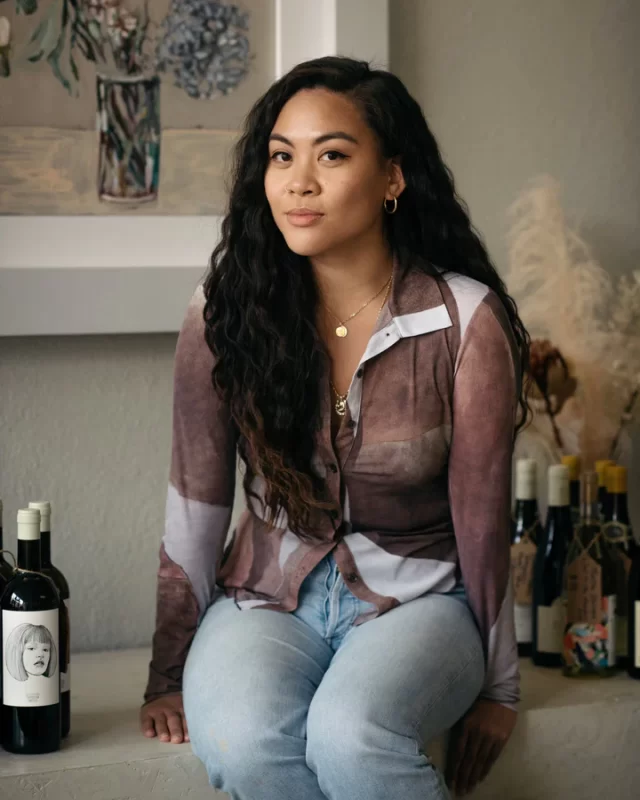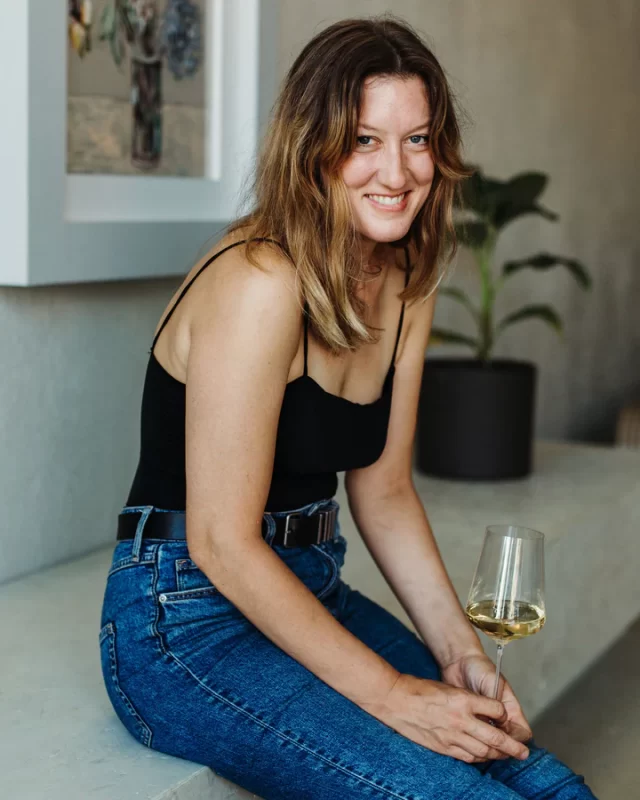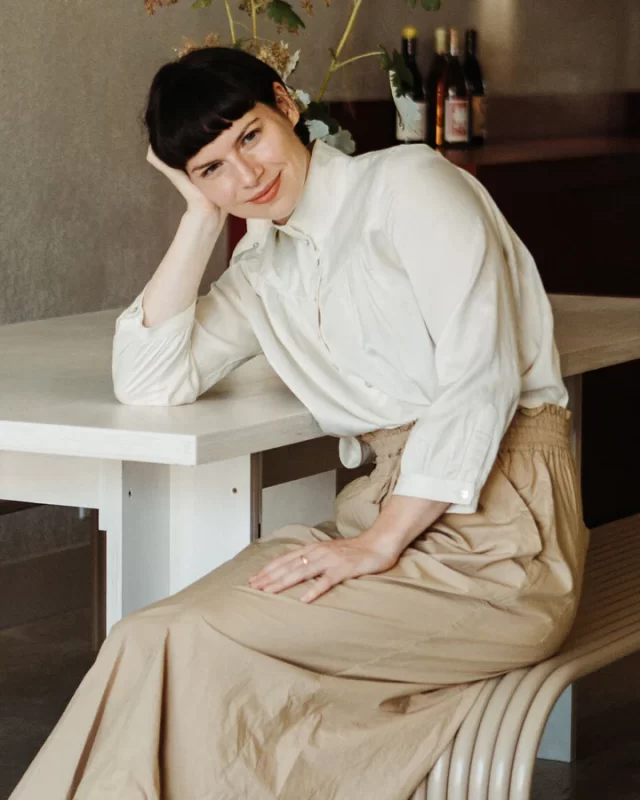Less is More: Toronto’s Evolving Wine Scene
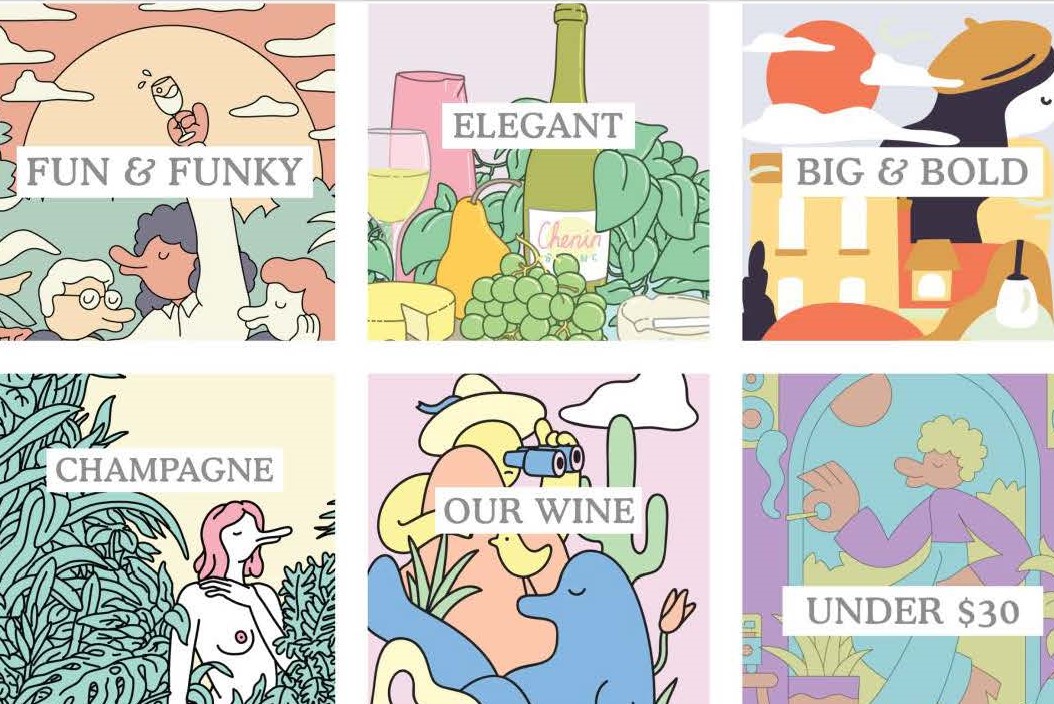
There has been a noticeable change in the Toronto wine scene over the last 5 to 7 years. A ripening, if you will, that has seen the development of increasingly diverse and dynamic wine spaces and “bottle-shops.”
No longer defined by the classic structure of a wine bar or of presenting an expensive and extensive wine list in a fine-dining operation, these spaces are building a new business model that prioritises democratic interactions with wine.
More relaxed environments and service style is one new element, but it is the ‘low intervention’ wines on offer that forms the most compelling part of the movement. So far, the wine-curious public has responded positively.
Presently, in my day-to-day service in a fine-dining restaurant context, almost 90% of the wines offered by the glass and in the pairing menu are low-intervention – be they biodynamic or “naturally” made. Guests at the restaurant, even the most rigid connoisseurs of Bordeaux and Burgundy, have been increasingly open to tasting more natural and biodynamic wine, but one of the questions that I am often asked is: ‘what is so different about them?’
To start, these non-industrial wines, often from smaller wine producers, are what I like to call “happy”, living wines – vin vivants. They offer energetic flavour sensations that are perhaps best compared with farm-to-table produce. But unlike traceable, local produce, which has become hugely popular in recent years, biodynamic wines have been sometimes tough to find or purchase in the city. This is changing along with Toronto’s wine culture, and now when I am asked for my recommendations on where to buy or enjoy these wines, I can provide a list of places to visit.
For this article, I consulted my own list and arranged a chat with the creative people driving two such venues: Lorien Codiamat and Nicole Raufeisen, the folks at Grape Witches (GW) on the trendy Dundas St. West strip; and best friends David Everitt and Christian Davis, who dreamed into life the Paradise Grapevine Winery and Bar (PG), located in a mini manufacturing avenue of a traditionally working-class neighbourhood.
From the second floor salon at Grape Witches – with Nicole, the Manager of Grape Witches Wine Imports, and Lorein, the General Manager of Grape Witches Retail & Event Space joining us on FaceTime – I was given the scoop about Grape Witches’ past and its present. In 2015 The GW started off as a collaboration between wine professionals Nicole Campbell, who has an extensive history in wine sales and imports, and Krysta Oben an experienced sommelier.
The two wine friends were frustrated by a lack of lower-intervention wines available in the city and unpretentious spaces to enjoy them in. At first, they initiated pop-up wine gatherings, tastings and wine-parties held in the back rooms of pizza parlours, restaurants, boat cruises and art galleries. By late 2019, they found a more permanent home, eventually signing a lease on what had previously been an art gallery with a second floor office.
From such low-key beginnings, GW has evolved from a retail bottle shop during the Covid-19 lockdown into a club-house, event space, wine retail and hospitality business. Lorein has said that “there is no business model” for their trajectory, and it is a path they have had to forge and define for themselves. ‘The’ has recently been dropped from their title to create the more inclusive ‘Grape Witches’ brand, which can be loosely defined as a collective of like-minded persons creating experiential environments and interactions around wines that are true to the spirit of low intervention, biodynamic wine-growing agriculture. GW are fully in control of a new narrative on how to engage with wine. Visitors can participate in scheduled education hours, or vibe over a glass or bottle during the casual end-of-week wine bar service. For those who prefer to enjoy their wine at home, an ever-growing wine club subscription program will ship bottles to your door.
Drop into the GW space on any given day and you are likely to encounter one of the ‘bosses’ working the floor: Nicole Campbell now the Creative Director, Lorien managing the space, and Nicole R running the import side of the business. They are reluctant to define job titles in the classic corporate sense, recognizing that this doesn’t serve their larger purpose and that there is a large team of seasoned industry professionals working together to develop the GW brand. GW is a team that “looks and feels like ‘Toronto,” says Lorein, and one that stretches “across as many demographics as possible.”
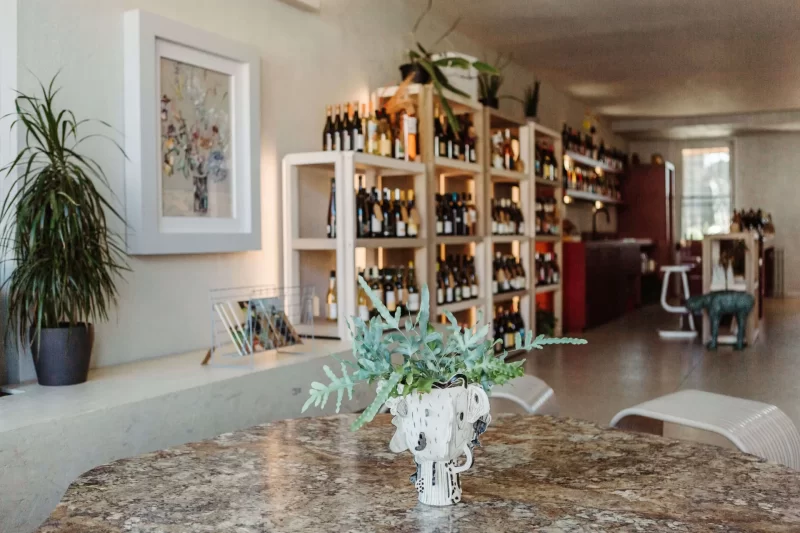
Nicole R. further adds that, “The aim is to make the space accessible, non-pretentious, and welcoming.” I was impressed to learn that staff are also versed in using non-Eurocentric language when describing flavours and sharing the stories behind the wines. Though serving a predominantly white and financially mobile neighbourhood clientele that is young and well-travelled, GW are looking to encourage a gradual change in who is seeking out natural/biodynamic wines. The popularity of these wines should be, after all, universal.
Fresh from these exciting conversations I moved over to the Paradise Grape Vine Winery (PG) where I met with Christian Davis and Dave Everitt. They hailed me from underneath the signage of an old Portuguese Churrasqueira with an adjacent garage. This 6,000 square foot urban winery, kitchen and patio on Geary Ave in downtown Toronto is where these two friends set up their second shop, but it all started in 2018 with Paradise Grapevine.
The wine bar and bottle shop, was, in their own words, a “tongue in cheek gentrification” of Bar Menelon, a popular Greek restaurant and bar in the neighbourhood. Christian and Dave befriended the ageing owner of the restaurant and eventually navigated an emotional transfer of ownership with the family. Paradise Grapevine on Bloor Street was born. As an homage to the spirit of Bar Menelon’s patriarch, they kept many of the murals depicting life in Menelon Arcadia, in Greece, and nurtured the 35-year old grapevine that covers the back patio. Christian says they wanted “a space to enjoy wine as a normal past time. We both love wine and at the time it was niche, and we wanted to do this in a space that resonated with us.”
Paradise Grapevine soon took on a life of its own. Staffed with wine-loving friends from the industry, it fast became a Bloor St. outlet for natural wines, serving a primarily middle-class community.
Purchasing eight tonnes of mostly organic, Niagara sourced grapes and renting space at existing wineries to produce wines under their brand, Dave became a self-proclaimed “ghost winemaker.” Then in 2021 an opportunity to build a winery in Toronto on Geary Ave. presented itself, a project that eventually became the Paradise Grapevine Winery. Dave tells me that “via manufacturing, I want to contribute to the cultural development of this city in a relevant way. The winery is an interesting space that creates a ‘good feeling’ in an area that has historically been a viable urban industrial quarter.” Christian adds that on a social and emotional level “the ambiance and energy of the bar and kitchen, the noise, the grit of this location, the staff and community” have engendered “a reciprocal desire” for people to care for one another.
The Queer and LGBTQ2S+ wine community has particularly embraced Paradise Grapevine, and the desire to nurture and care for the community. Especially after the pandemic-induced turmoil of the last 3 years, which has led to positive change in the guest demographic and day-to-day operations at the winery. Christian adds that “the racial demographic has also changed and is reflected in the staff working behind the bar and in our clientele, predominantly women, which skews between 25-45 years old.” As a team they have created a space that has relevance for the times in which we live.
As for the future development of experience-driven wine spaces, both GW and PG continue to develop and sharpen their focus. For GW, improving on the guest experience, events, creating content and developing their staff remains a major goal. For PG, continuing to convert their winegrowers to low interventionist methods to improve the quality and enjoyment of their wines for their wine bar and patio space is the aim. For both there is hope that the LCBO and AGCO, the government entities that regulate wine and alcohols sales and how businesses function, will understand that allowing businesses like GW and PG to flourish will lead to a happy and healthy wine culture that “will not cut into the social capital of the government-run monopoly,” as Lorein puts it.
Dave also hopes that “as the wine movement gets wider at the periphery it will allow for more familiar spaces.”
I believe that it is only with a diversity of venues, offering a diversity of experiences around the flavours that low-intervention, biodynamic and natural wines offer will we be able to truly change the city’s mostly conservative and classist wine culture. Taste more to be more.
Feature photo credit: Paradise Grapevine website

